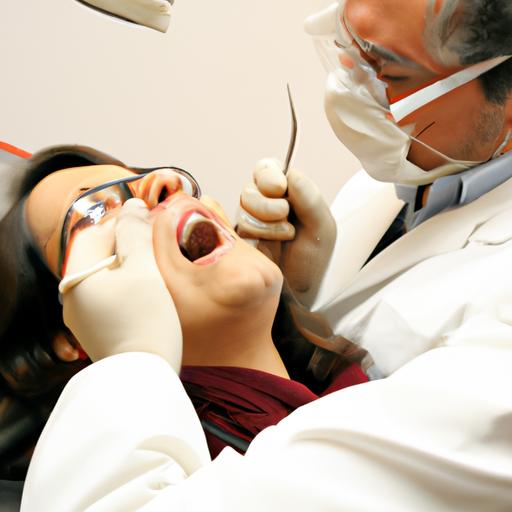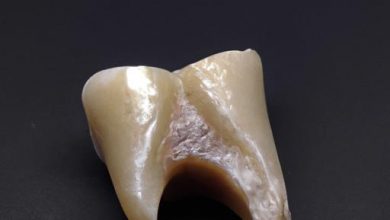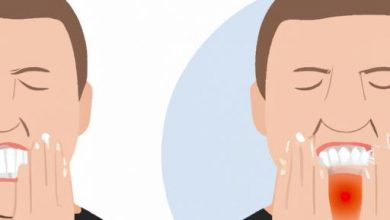What is Dental Problems? Understanding the Basics
Dental problems refer to any issues related to the teeth and gums, which can cause pain, discomfort, and other complications. Maintaining good dental health is essential to prevent dental problems and keep your teeth and gums healthy. In this article, we will discuss the types, causes, prevention, and treatment of dental problems.
Types of Dental Problems

There are several types of dental problems, including:
Tooth Decay
Tooth decay is the most common dental problem, and it occurs when the bacteria in your mouth produce acid that erodes the tooth enamel. Over time, the acid can create a cavity in the tooth, which can lead to pain, infection, and even tooth loss.
Gum Disease
Gum disease is an infection of the gums that can lead to inflammation, bleeding, and ultimately tooth loss. Plaque buildup is the primary cause of gum disease, which can be prevented by brushing and flossing regularly.
Bad Breath
Bad breath, also known as halitosis, can be caused by poor oral hygiene, gum disease, or other underlying health conditions. It can be embarrassing and affect your social life, but it can be treated by maintaining good oral hygiene and visiting a dentist regularly.
Tooth Sensitivity
Tooth sensitivity is a common dental problem that causes pain or discomfort when eating or drinking hot or cold foods. It can be caused by enamel erosion, gum recession, or tooth decay, and it can be treated with desensitizing toothpaste or other dental treatments.
Oral Cancer
Oral cancer is a serious condition that affects the mouth, lips, tongue, and throat. It can be caused by smoking, drinking alcohol, or other factors, and it can be detected early by visiting a dentist regularly for checkups.
Understanding the types of dental problems is the first step in preventing and treating them. By maintaining good oral hygiene and visiting a dentist regularly, you can prevent most dental problems and keep your teeth and gums healthy.
Causes of Dental Problems
Several factors contribute to the development of dental problems, including:
Poor Oral Hygiene
Poor oral hygiene is one of the primary causes of dental problems, as it allows bacteria to build up in the mouth and cause tooth decay, gum disease, and other complications. Brushing and flossing regularly can help prevent dental problems and maintain good oral health.
Unhealthy Diet
An unhealthy diet high in sugar and carbohydrates can contribute to dental problems by providing fuel for bacteria to grow. It is essential to eat a balanced diet that is low in sugar and high in nutrients to prevent dental problems.
Smoking and Tobacco Use
Smoking and tobacco use are significant risk factors for dental problems, including tooth decay, gum disease, and oral cancer. Quitting smoking and tobacco use can help prevent these problems and improve overall health.
Genetic Factors
Some people are more prone to dental problems due to genetic factors, such as weaker enamel or a higher risk of gum disease. Regular dental checkups can help detect and treat these problems early.
Medications
Certain medications can contribute to dental problems, such as dry mouth, which can lead to tooth decay and gum disease. It is essential to inform your dentist of any medications you are taking to prevent these problems.
Understanding the causes of dental problems can help you prevent them and maintain good oral health. By making healthy lifestyle choices and visiting a dentist regularly, you can keep your teeth and gums healthy for a lifetime.
Causes of Dental Problems (Continued)
Poor Oral Hygiene
Poor oral hygiene is a primary cause of dental problems, as it allows bacteria to build up in the mouth and cause tooth decay, gum disease, and other complications. Brushing and flossing regularly can help prevent dental problems and maintain good oral health.
Unhealthy Diet
An unhealthy diet high in sugar and carbohydrates can contribute to dental problems by providing fuel for bacteria to grow. It is essential to eat a balanced diet that is low in sugar and high in nutrients to prevent dental problems.
Smoking and Tobacco Use
Smoking and tobacco use are significant risk factors for dental problems, including tooth decay, gum disease, and oral cancer. Quitting smoking and tobacco use can help prevent these problems and improve overall health.
Genetic Factors
Some people are more prone to dental problems due to genetic factors, such as weaker enamel or a higher risk of gum disease. Regular dental checkups can help detect and treat these problems early.
Medications
Certain medications can contribute to dental problems, such as dry mouth, which can lead to tooth decay and gum disease. It is essential to inform your dentist of any medications you are taking to prevent these problems.
Understanding the causes of dental problems can help you prevent them and maintain good oral health. By making healthy lifestyle choices and visiting a dentist regularly, you can keep your teeth and gums healthy for a lifetime.
Prevention of Dental Problems
Prevention is the best way to maintain good oral health and prevent dental problems. Here are some tips to prevent dental problems:
Regular Brushing and Flossing
Brushing and flossing regularly is the most effective way to prevent dental problems and maintain good oral health. Brush your teeth at least twice a day, and floss at least once a day to remove plaque and bacteria from your teeth and gums.
Healthy Diet and Lifestyle
Eating a balanced diet that is low in sugar and high in nutrients is essential to prevent dental problems. Avoiding sugary and acidic foods and drinks can help prevent tooth decay and erosion. Also, drinking plenty of water can help wash away food particles and bacteria from your mouth.
Regular Dental Check-ups
Regular dental checkups are essential to detect and treat dental problems early. Visit your dentist at least twice a year for routine checkups and cleanings, and more frequently if you have specific dental problems or concerns.
Fluoride Treatments
Fluoride treatments can help prevent tooth decay by strengthening the tooth enamel. Your dentist may recommend fluoride treatments if you are at high risk of dental problems or have weak enamel.
Avoiding Smoking and Tobacco Use
Smoking and tobacco use are significant risk factors for dental problems, including tooth decay, gum disease, and oral cancer. Quitting smoking and tobacco use can help prevent these problems and improve overall health.
Preventing dental problems is essential to maintaining good oral health and overall health. By following these tips and visiting a dentist regularly, you can keep your teeth and gums healthy for a lifetime.
Treatment of Dental Problems
Various treatments are available for dental problems, depending on the severity and type of the problem. Some of the common treatments are:
Fillings and Crowns
Fillings and crowns are used to treat tooth decay and restore damaged teeth. Fillings are typically used for small cavities, while crowns are used for larger areas of decay.
Root Canal Treatment
Root canal treatment is used to treat infected or damaged teeth by removing the infected pulp and cleaning and sealing the root canal. This treatment can save a damaged tooth from extraction.
Gum Surgery
Gum surgery is used to treat advanced gum disease that cannot be treated with regular dental procedures. It involves removing the infected gum tissue and restoring the gums to their original health.
Oral Cancer Treatment
Oral cancer treatment typically involves surgery, radiation therapy, or chemotherapy, depending on the stage and severity of the cancer. Early detection is crucial to successful treatment.
Orthodontic Treatment
Orthodontic treatment is used to correct misaligned teeth and jaws, which can cause dental problems and affect oral health. Braces, aligners, and other orthodontic appliances can be used to straighten teeth and improve oral health.
Conclusion
Maintaining good dental health is essential to prevent dental problems and maintain overall health and well-being. By understanding the types and causes of dental problems and taking preventive measures, such as regular brushing and flossing and visiting a dentist regularly, you can prevent most dental problems and keep your teeth and gums healthy.
Early detection and treatment of dental problems are crucial to successful treatment and prevention of further complications. Therefore, it is essential to visit a dentist regularly and seek treatment immediately if you experience any dental problems.
At Zahnweiss Info, we are dedicated to providing the latest updates on dental health news, treatments, and therapies, inspiring patient stories, and expert advice to help you maintain good dental health and live your healthiest life. So, take care of your teeth and gums, and start your journey towards better dental health today!




